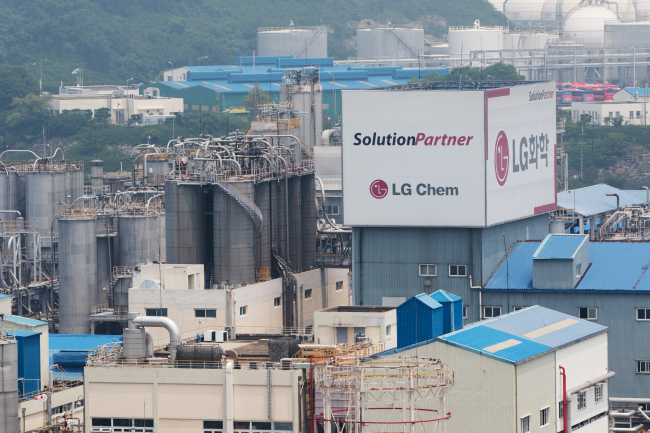South Korea’s leading battery-maker LG Chem said Monday that it has secured a deal worth millions of dollars to supply its batteries for a project to build the world’s largest energy storage system for frequency regulation in Germany.
The company’s lithium-ion batteries will be utilized in a project led by German power generator Steag to build the ESSs for frequency regulation in six regions in Nordrhein-Westfalen and Saaerland, Germany, in 2016.
The ESS for frequency regulation is used to maintain the reliable operation of the electrical grid by balancing the fluctuations between power generation and electrical load.
The company’s lithium-ion batteries will be utilized in a project led by German power generator Steag to build the ESSs for frequency regulation in six regions in Nordrhein-Westfalen and Saaerland, Germany, in 2016.
The ESS for frequency regulation is used to maintain the reliable operation of the electrical grid by balancing the fluctuations between power generation and electrical load.

With the new laws requiring power plants -- both private and public -- to be fitted with frequency regulation systems in Germany, LG Chem expects to participate in other energy projects down the road.
The ESS to be built in Germany with 140-megawatt capacity can power 10,000 households a day, or fully charge 7,600 units of electric car Volt.
In a bid to increase its foothold in global markets, the company has been joining hands with global power generators.
LG Chem’s shipment of ESS batteries this year so far -- capacity of 400 megawatts -- exceeded half of the entire ESS’ shipped in the world’s market last year.
The company is slated to supply batteries for a project in Hokkaido, Japan, to build a 31MWh ESS by 2017.
It has provided the operating system and batteries for a project led by U.S. energy firm Duke to construct a 2-megawatt ESS built in a closed coal plant in New Richmond, U.S.
Other deals include those with German renewable energy firm Energiequelle, and Gexpro, U.S. distributor of electrical supplies.
The Korean firm has also tapped into global energy markets with its domestic ESS product RESU 6.4 EX earlier this year.
“Coupled with government initiatives around the world to increase the use of renewable energy sources, the ESS, which allows efficient storage and use of energy, will be more widely used in a wide range of industry sectors,” an market official said.
Germany aims to increase power generation by renewable energy up to 80 percent by 2050, while Japan has set a target of 20 percent.
Korea has set its goal for power generation with renewable energy at 11 percent by 2035.
By Kim Young-won (wone0102@heraldcorp.com)











![[Today’s K-pop] BTS pop-up event to come to Seoul](http://res.heraldm.com/phpwas/restmb_idxmake.php?idx=644&simg=/content/image/2024/04/17/20240417050734_0.jpg&u=)




![[KH Explains] Hyundai's full hybrid edge to pay off amid slow transition to pure EVs](http://res.heraldm.com/phpwas/restmb_idxmake.php?idx=652&simg=/content/image/2024/04/18/20240418050645_0.jpg&u=20240419100350)

![[Today’s K-pop] Zico drops snippet of collaboration with Jennie](http://res.heraldm.com/phpwas/restmb_idxmake.php?idx=642&simg=/content/image/2024/04/18/20240418050702_0.jpg&u=)